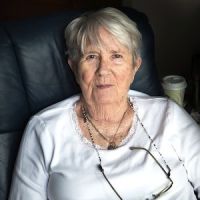Researchers and clinicians at Indiana University (IU) and the Regenstrief Institute have developed a new model aimed at reducing unnecessary hospital transfers of frail elderly nursing home residents. The model addresses communication between staff members within and between nursing facilities and acute care centres. A study reporting on the first year of the model’s implementation appears in the current issue of the Journal of the American Geriatrics Society.
OPTIMISTIC, an acronym for Optimizing Patient Transfers, Impacting Medical quality and Improving Symptoms: Transforming Institutional Care, is designed to improve care for long-term nursing home residents and their families. By examining some preventable problems such as missed changes in residents’ medical status, medication errors and a lack of advanced directives, the hope is that there will be fewer unnecessary transfers of residents to hospitals. It is estimated that the rate of avoidable hospitalisations of nursing facility residents is as high as 50 percent.
"Through this project, our specially trained RNs are doing in-depth reviews of all hospital transfers and are able to identify areas for quality improvement. Working with the IU School of Nursing, the University of Indianapolis and our nursing home partners, we are developing and testing a new model of care,” said Regenstrief Institute investigator Kathleen T. Unroe, MD, MHA. Dr. Unroe is one of the project’s co-directors, an Assistant Professor of Medicine at the IU School of Medicine and a scientist at the IU Center for Aging Research.
Project director Greg A. Sachs, MD, noted the urgent challenge of attending to growing numbers of long-term nursing home residents. "With OPTIMISTIC, we are working with the residents where they live to improve many aspects of their lives including chronic disease management -- especially for dementia, which affects more than half of long-stay residents -- as well as to improve the care they receive during the transition process to and from a hospital, when that transfer is necessary,” he said. Dr Sachs is a Regenstrief Institute investigator, the Director of the IU School of Medicine’s Division of General Internal Medicine and Geriatrics, an IU Center for Aging Research Center scientist and a professor of medicine.
A key component of OPTIMISTIC is its focus on early detection of problems which could prevent resident transfers if promptly addressed. As such, nurses participating in the study provide education and training to facility staff and direct support to residents and their families. Nursing facility employees regularly meet with project leaders to discuss concerns and address issues which arise.
Upfront costs for the quality improvement investments should be offset by reduced expenses related to unnecessary and preventable hospitalisations, the study authors report. Additional savings will arise from fewer post acute care stays. Dr. Unroe reiterated that the participation of 19 local nursing facilities in the project indicates the widespread support for care quality improvement and a reduction in unnecessary hospital transfers.
"Early experiences of clinical staff have yielded multiple stories of nursing facility staff, residents and families impacted by improved care,” the authors reported.
The OPTIMISTIC acronym was chosen for its positive tone, which reflects the researcher-clinicians’ hope for regional and national system changes for the benefit of frail elderly adults. The project is a four-year program supported by a $13.4 million grant awarded to the researchers in 2012 by the Centers for Medicare and Medicaid Services (CMS) Innovation Center and the CMS Medicare-Medicaid Coordination Office.
Image Credit: Pixabay
Latest Articles
elderly patients, avoidable hospitalisations, nursing homes, geriatrics
Researchers and clinicians at Indiana University (IU) and the Regenstrief Institute have developed a new model aimed at reducing unnecessary hospital trans...



























